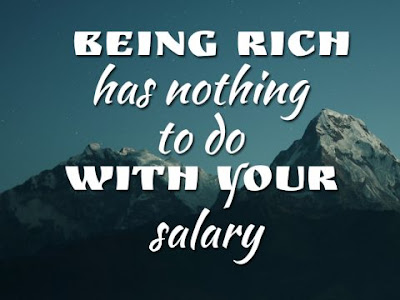Probably the most consistent problem I'm asked to help with is sustaining the momentum required to finish writing projects.
Writing a book is apparently the secret wish of 90% of the population - as though writing a book somehow validates us as humans - and perhaps makes us a little more immortal. But only around 5% of people will ever rise to the challenge - and even they will falter more times than not. Of these would be writers, less than one percent will ever finish their books - and just to be depressing now, only a handful of that one percent will ever be published.
Faced with this punishing reality, how do you find the strength to carry on writing?
Let me answer by telling you a story.
Once, a very long time ago, I asked a practising motivational guru how I could become rich. I say it was a long time ago because in those days I was very cynical and I asked the question as more of a challenge than a query. The guru gave me a quick answer:
"Want to be rich."
I gave a dismissive grunt at this and asked, "Yeah, so what if that doesn't work?"
She smiled when she said, "Then you didn't want it enough."
At the time I took this to be a cop out. I congratulated myself, smugly, that I had exposed her phoniness.
Now, of course, I know better.
Because this is precisely how life works. In order to make anything happen, to get things done, achieve results, you have to want them enough.
But, but, but...
Yeah, I know what you're thinking. Knowing this isn't getting you any closer to the 'how'.
How do you get yourself to want something that much? I mean writing success is one thing - but all that work! Isn't there an easier way?
Well, yeah there is actually - and all it requires is a little shift in your perspective - and a whole lotta dreamin'...
Now, I could list a bunch of 'things to do' to help you create a little writing success but - that can wait for another day. Today, I want to tell you about the single most important aspect of success.
Today's the Day
Success is not a place or a time or a circumstance.
It's a state of mind.
And it's happening right now - all you have to do is to reach out and grasp it.
Take a few moments - actually the rest of the day - and imagine that you are rich, fulfilled and able to do anything you want, whenever you like.
Pretty cool, huh?
Now ask yourself: How would you feel? What would you do?
This is the shift in perspective I was talking about. You're never going to help your subconscious deal with writing success unless it believes it's already happening. Because it's only when success is actually happening to you that you will begin to make the right decisions for your writing career and enable yourself to perpetuate the writing life you want.
Writing for a living requires commitment. Some things will work out, some things will not. That's the reality. You can't wait for the good times and then expect everything to be fine from then on. It doesn't work like that.
Achieve Your Writing Goals This Year
You need to decide, right now, that you are a writer - and will continue to be a writer from this moment on. And while you're about it, tell yourself you're already a successful writer - dwell on it, dream on it, and make it real.
Because it's believing that you are already a good and talented writer that will get you to finish writing projects.
I know this is true because, no matter the actual talent of the writer, it's the one's that believe in themselves and dream about the writer's life that make it. Every time.
I also know because a long time before we had houses and cars and money, Robyn and I behaved in this way. Though we may have been naive and perhaps not that good to begin with, we never stopped believing we were meant to be successful writers.
And believing made it so.
Believing made us write more, made us read more, made us study writing, made us take courses and keep on learning as much as we could.
We still do it today because writing is a lifelong education. You don't just wake up one day and say "Ah, now I get it, now I know enough."
Writing is a way of life and it's when you immerse yourself in it totally that you gain the necessary resolve to finish things - and then get them out there and published!
To Your Success.
Keep writing!
Creating Better Writers
Rob Parnell's Writing Academy




